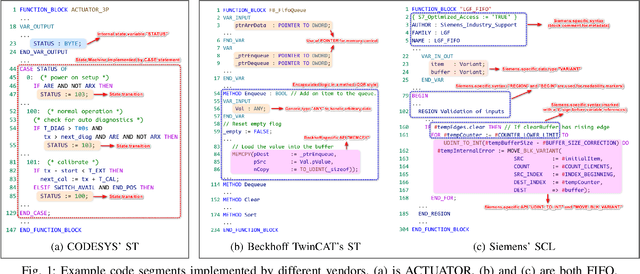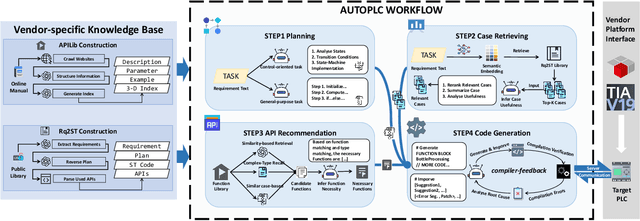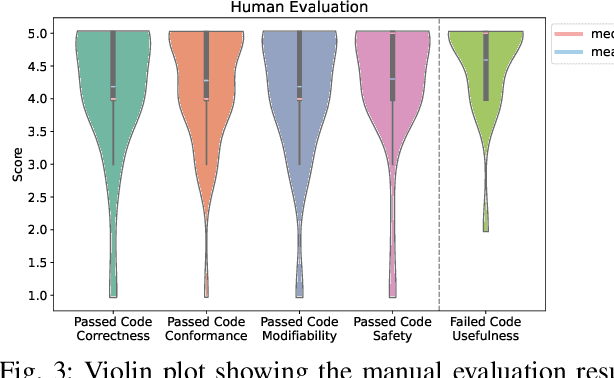Yuming Ren
A Multi-Agent Framework for Extensible Structured Text Generation in PLCs
Dec 03, 2024



Abstract:Programmable Logic Controllers (PLCs) are microcomputers essential for automating factory operations. Structured Text (ST), a high-level language adhering to the IEC 61131-3 standard, is pivotal for PLCs due to its ability to express logic succinctly and to seamlessly integrate with other languages within the same standard. However, vendors develop their own customized versions of ST, and the lack of comprehensive and standardized documentation for the full semantics of ST has contributed to inconsistencies in how the language is implemented. Consequently, the steep learning curve associated with ST, combined with ever-evolving industrial requirements, presents significant challenges for developers. In response to these issues, we present AutoPLC, an LLM-based approach designed to automate the generation of vendor-specific ST code. To facilitate effective code generation, we first built a comprehensive knowledge base, including Rq2ST Case Library (requirements and corresponding implementations) and Instruction libraries. Then we developed a retrieval module to incorporate the domain-specific knowledge by identifying pertinent cases and instructions, guiding the LLM to generate code that meets the requirements. In order to verify and improve the quality of the generated code, we designed an adaptable code checker. If errors are detected, we initiate an iterative self-improvement process to instruct the LLM to revise the generated code. We evaluate AutoPLC's performance against seven state-of-the-art baselines using three benchmarks, one for open-source basic ST and two for commercial Structured Control Language (SCL) from Siemens. The results show that our approach consistently achieves superior performance across all benchmarks. Ablation study emphasizes the significance of our modules. Further manual analysis confirm the practical utility of the ST code generated by AutoPLC.
Bootstrapping Contrastive Learning Enhanced Music Cold-Start Matching
Aug 05, 2023Abstract:We study a particular matching task we call Music Cold-Start Matching. In short, given a cold-start song request, we expect to retrieve songs with similar audiences and then fastly push the cold-start song to the audiences of the retrieved songs to warm up it. However, there are hardly any studies done on this task. Therefore, in this paper, we will formalize the problem of Music Cold-Start Matching detailedly and give a scheme. During the offline training, we attempt to learn high-quality song representations based on song content features. But, we find supervision signals typically follow power-law distribution causing skewed representation learning. To address this issue, we propose a novel contrastive learning paradigm named Bootstrapping Contrastive Learning (BCL) to enhance the quality of learned representations by exerting contrastive regularization. During the online serving, to locate the target audiences more accurately, we propose Clustering-based Audience Targeting (CAT) that clusters audience representations to acquire a few cluster centroids and then locate the target audiences by measuring the relevance between the audience representations and the cluster centroids. Extensive experiments on the offline dataset and online system demonstrate the effectiveness and efficiency of our method. Currently, we have deployed it on NetEase Cloud Music, affecting millions of users. Code will be released in the future.
* Accepted by WWW'2023
 Add to Chrome
Add to Chrome Add to Firefox
Add to Firefox Add to Edge
Add to Edge